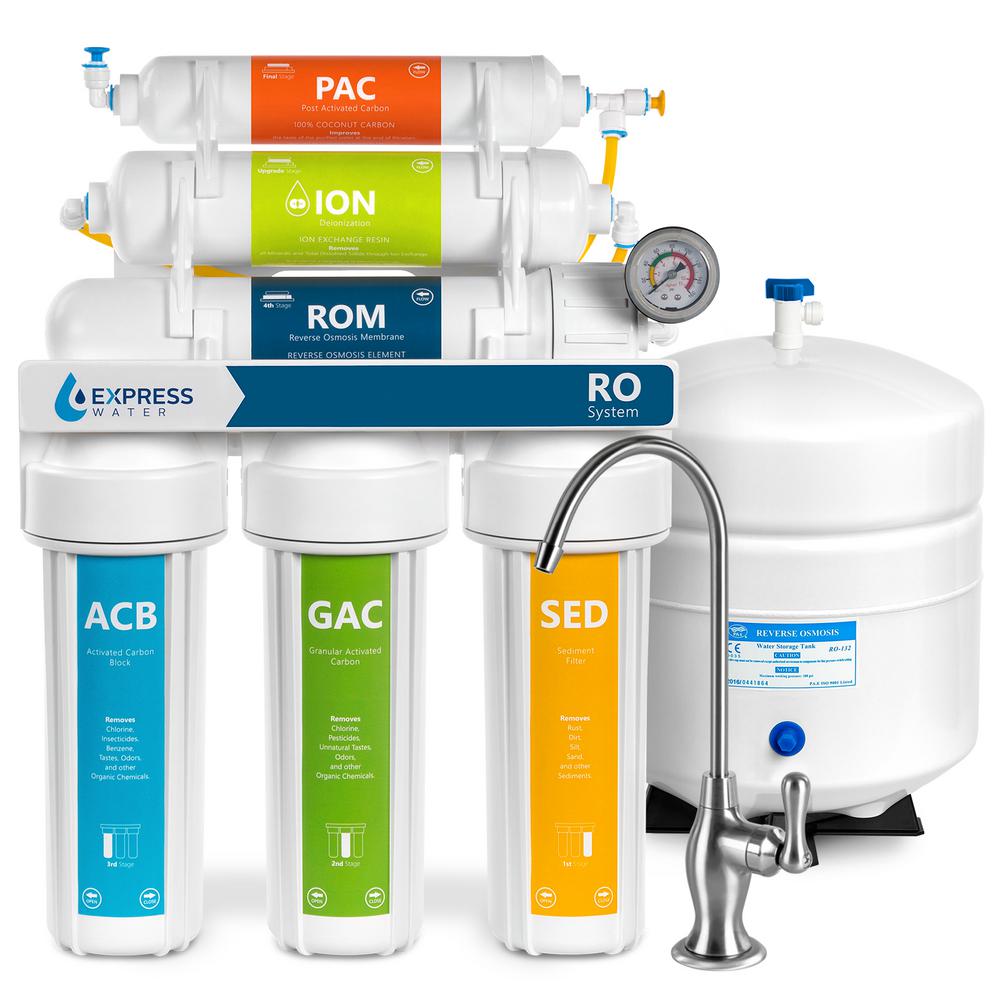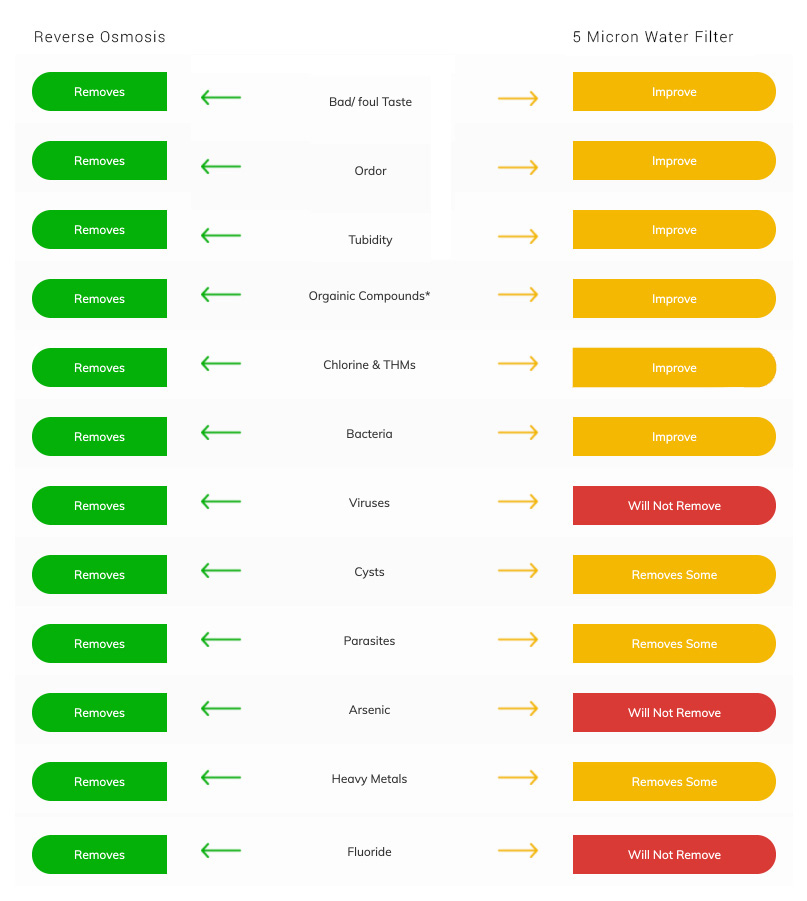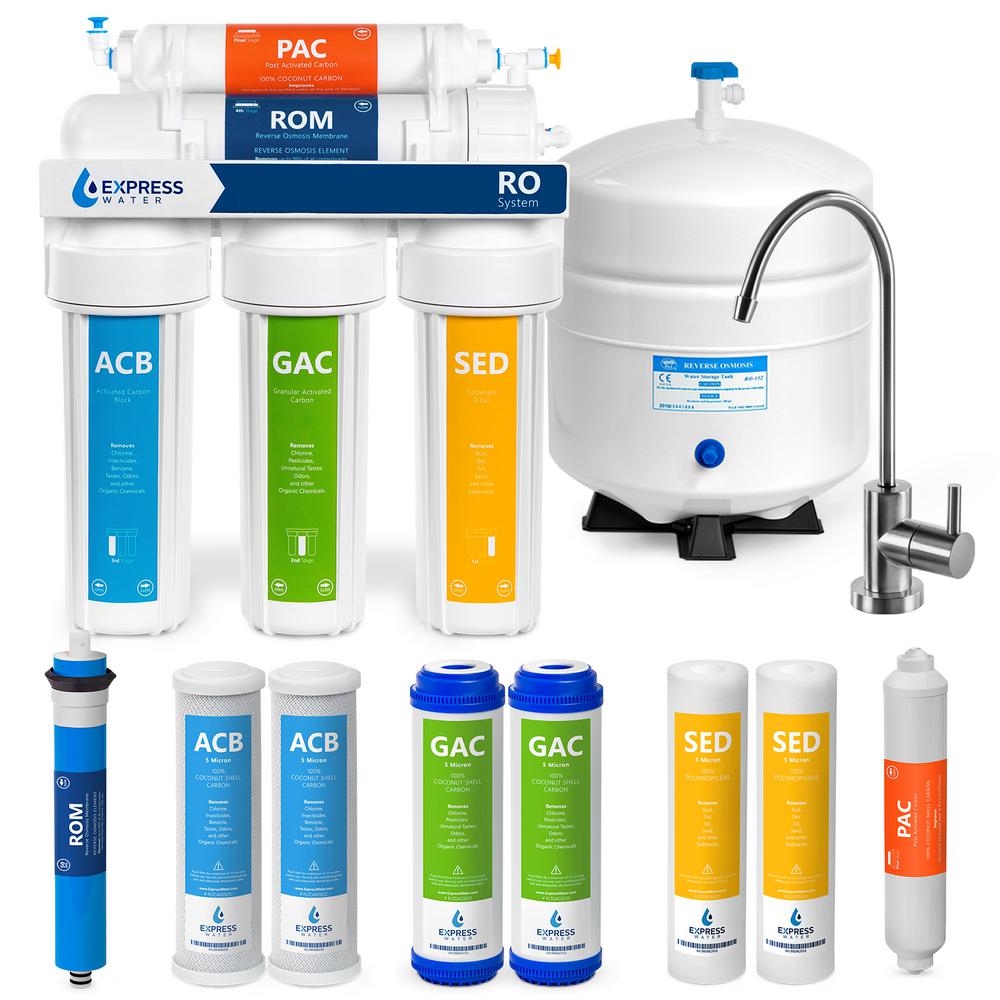Solid Carbon Block Water Filter Vs Reverse Osmosis

The difference between reverse osmosis and carbon filtration is the presence of the high quality reverse osmosis membrane.
Solid carbon block water filter vs reverse osmosis. Apart from giving you cleaner water it also gives you water with a better taste. They require 3 kilowatts of electricity to filter one gallon of water at a cost of 0 35. In conclusion carbon filters and reverse osmosis water softeners are both awesome water filters. As water passes through the carbon low weight contaminants adhere to the carbon.
Most of these will remove more chlorine. Solid carbon block filters do not remove healthful naturally occurring minerals require no electricity and do not add salt or silver to the water reverse osmosis reverse osmosis ro has been known for more than a century but it did not become a commercial process until the early sixties when a special membrane was developed. It might even be better then ro reverse osmosis. Solid block carbon filters are the best water filters because they remove impurities from your drinking water without also removing its natural healthy minerals and nutrients.
When it comes to choosing an activated carbon filter for these type of systems you generally have two choices. Carbon block filter vs. Distilled water filters are more expensive to operate and take longer to filter water than either carbon filters or reverse osmosis. It s not much but reverse osmosis filters only cost 0 18 per gallon and most carbon filters cost nothing at all.
Reverse osmosis reverse osmosis or ro is a technology that utilizes a semipermeable membrane to separate inorganic contaminants from water. Herbicides pesticides and voc s. An example of this would be our always fresh filter. Whereas carbon filters work great for simple tasks like making water smell and taste a little better.
Removing these contaminants requires either a reverse osmosis water filter system or a distiller some can also be removed by kdf 55 or manganese greensand. Carbon filters comes in many options and the percentage removal of particulates chlorine cysts etc. Activated carbon filtration is most effective at removing or reducing impurities and contaminants such as chlorine sediment volatile organic compounds poor taste and odour from water. A high quality carbon filter is often more effective than a low end reverse osmosis system.
Better filters would be carbon in a block form some being activated carbon or similar. Reverse osmosis is great for hardcore water filtration for smell taste and safety. Carbon block or reverse osmosis ro. Ro has no independent ability to reduce levels of most vocs.
Carbon filters have a pore size of less than 1 micron to 50 microns however it does not rely on the filtering straining action alone. Depends on the porosity of filter and additional add ons.














































